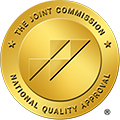Severe Withdrawal Symptoms: Individuals may experience intense withdrawal symptoms including severe pain, nausea, vomiting, diarrhea, and extreme discomfort, which are difficult to manage without professional medical intervention.
Health Risks: Without medical supervision, there is a risk of serious health complications such as dehydration, malnutrition, and heart irregularities due to unmanaged symptoms.
High Risk of Relapse: The discomfort and stress of withdrawal symptoms without support can increase the likelihood of relapse. Medical detox programs often provide medications to manage withdrawal symptoms and reduce cravings, improving the chances of successful recovery.
Psychological Effects: Detoxing alone can lead to severe anxiety, depression, and even suicidal thoughts. Medical professionals can provide necessary psychological support and interventions.
Lack of Immediate Help in Emergencies: In a medical detox setting, healthcare providers are equipped to handle emergencies that may arise from complications during the detox process. Detoxing at home lacks this immediate medical response, which can be critical.
It is highly recommended that individuals seeking to detox from heroin do so under the supervision of qualified medical professionals in a controlled environment, this ensures safety and increases the probability for success in recovering from heroin addiction.


Heroin Withdrawal Symptoms
- Early Withdrawal 6-12 hours after the last dose: Early symptoms begin to appear, often starting with muscle aches and increasing in intensity over the first 48 hours.
- Days 1-3: Symptoms typically peak during this period. This is when the most severe symptoms occur, such as intense cravings, nausea, vomiting, sweating, and abdominal cramping.
- Week 2 onwards: Most physical symptoms should have resolved, though psychological symptoms and cravings can continue for months, requiring ongoing support and treatment.
Symptoms of Heroin WithDrawl
- Mild Muscle Aches
- Mild Anxiety
- Nausea without
- Vomiting
- Sweating
- Runny Nose
- Tearing Eyes
In the best-case scenario, the individual experiences mild discomfort that, while unpleasant, is manageable without medical intervention. Emotional disturbances might be mild, characterized by temporary anxiety or irritability.
- Severe Muscle Aches and Joint Pain
- Intense Abdominal Cramping
- Severe Nausea and Vomiting
- High Blood Pressure and Rapid Heart Rate
- Severe Anxiety and Depression
- Insomnia
- Diarrhea
- Dehydration
In the worst-case scenario, symptoms are intensely debilitating, requiring medical intervention to safely manage the risk of complications like dehydration, electrolyte imbalance, and the exacerbation of pre-existing health conditions. Psychological symptoms can be severe enough to pose a risk of self-harm. Understanding the intensity and timeline of withdrawal symptoms underscores the importance of medically supervised detoxification, which can provide both immediate physical relief and critical psychological support during this challenging period.

Our Outpatient Detox Protocol




